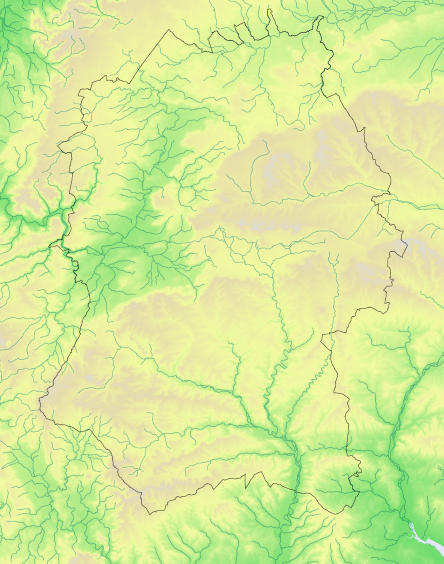Siskin Carduelis spinus
Winter distribution change
Common winter visitor from north Britain/Europe, now breeds very locally
Atlas species lists
- Breeding distribution 1995–2000
- Summer abundance 1995–2000
- Winter distribution 1995–2000
- Winter abundance 1995–2000
- Breeding distribution 2007–2012
- Summer abundance 2007–2012
- Winter distribution 2007–2012
- Winter abundance 2007–2012
- Breeding distribution change
- Summer abundance change
- Winter distribution change
- Winter abundance change
More Siskin maps
- Breeding distribution 1995–2000
- Summer abundance 1995–2000
- Winter distribution 1995–2000
- Winter abundance 1995–2000
- Breeding distribution 2007–2012
- Summer abundance 2007–2012
- Winter distribution 2007–2012
- Winter abundance 2007–2012
- Breeding distribution change
- Summer abundance change
- Winter distribution change
- Winter abundance change
Map explanation
This map shows the changes which occurred in the winter distribution of the species between 1995-2000 and 2007-2012, but only in the limited selection of tetrads that were surveyed in winter for Birds of Wiltshire (Wiltshire Ornithological Society 2007).
Key
Status
Nos tetrads

Absent to present
129
29%

Present in both
14
3%

Present to absent
8
2%

Not surveyed
Siskins breed in the northern half of Europe and in southern mountains from the Pyrenees through to Asia Minor and northern Iran as well as discontinuously across Asia to Sakhalin and north Japan. They nest in conifers. Those breeding in eastern and northern Europe, including in north Scotland, move south and southwest in winter, many reaching southern England.
In Britain in the 19th century breeding Siskins were confined mostly to Scotland's native pine forests, the felling of which, and the activities of bird catchers, around the turn of the century led to local declines in population numbers. By the 1930s the declines had stopped and Siskins were now regularly found breeding in northern England. The planting of new conifer plantations after the end of the second World War led to major increases in Siskin numbers in Scotland, Wales and northern England and eventually further south.
In Wiltshire in the 19th century Siskins were known as regular winter visitors, in some years in great numbers, and this has continued to be the case throughout the 20th and early 21st centuries. There have also been regular records of passage migrants, in varying numbers, in both spring and autumn. They were popular cage birds, and occasional sightings of Siskins in summer were thought likely to refer to escaped birds. It was not until the 1980s that breeding was first confirmed in the county. Small, but increasing, numbers have been recorded in every summer since 1988: Birds of Wiltshire recorded them in 35 tetrads, with breeding in five; WTA2 recorded them in 82 tetrads with breeding in 29.
References
The following references are used throughout these species accounts, in the abbreviated form given in quotation marks:
“1968-72 Breeding Atlas” – Sharrack, J.T.R. 1976: The Atlas of Breeding Birds in Britain and Ireland. T. & A. Poyser
“1981-84 Winter Atlas” – Lack, P.C. 1986: The Atlas of Wintering Birds in Britain and Ireland. T. & A. Poyser
“1988-91 Breeding Atlas” – Gibbons, D.W., Reid, J.B. & Chapman, R.A. 1993: The New Atlas of Breeding Birds in Britain and Ireland 1988-91. T. & A. Poyser
“Birds of Wiltshire” – Ferguson-Lees, I.J. et al. 2007 : Birds of Wiltshire, published by the tetrad atlas group of the Wiltshire Ornithological Society after mapping fieldwork 1995-2000. Wiltshire Ornithological Society.
“Bird Atlas 2007-2011” – Balmer, D.E., Gillings, S., Caffrey, B.J., Swann, R.L., Downie, I.S. and Fuller, R.J. 2013: Bird Atlas 2007-2011: the Breeding and Wintering Birds of Britain and Ireland
“WTA2” – ("Wiltshire Tetrad Atlas 2 ") the present electronic publication, bringing together the Wiltshire data from “Birds of Wiltshire” and “Bird Atlas 2007-11”, together with data from further fieldwork carried out in 2011 and 2012.
"Hobby" - the annual bird report of the Wiltshire Ornithological Society.

